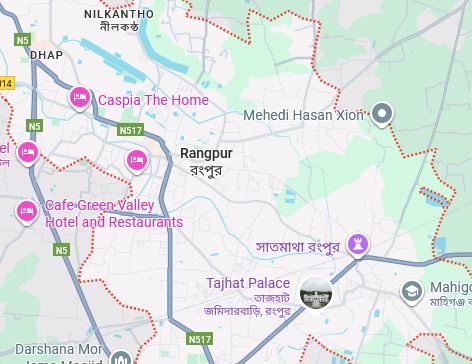News Flash

RANGPUR, Sept 06, 2025 (BSS) - As a result of the implementation of various government programmes, the incidence of waterborne diseases in rural areas of Rangpur division has almost come down to zero in recent years.
According to experts, the government's extensive awareness-raising and other activities have improved the health, cleanliness, sanitation and nutritional status of the rural population, who are using sanitary latrines and drinking safe drinking water.
As a result of growing public awareness about waterborne diseases, recurrence of diarrhoea, cholera, dysentery, hookworm and ringworm in rural areas has reduced to zero level.
Talking to BSS, housewives Jamuna Rani and Joytsna Rani of remote village Gangadas Baraipara and Sumaiya Begum of village Najirdigar in Rangpur Sadar said waterborne diseases disappeared since they started using sanitary latrines and drinking pure water.
Anufa Begum, Tohuja Begum and Sufia Begum, housewives from remote Sarkarpara village in Ramnagar union of Sadar upazila of Nilphamari, said that even a decade and a half ago, the incidence of water-borne diseases was very high in their village.
"However, the extensive government and NGO efforts have raised the awareness level of the villagers and reduced the recurrence of waterborne diseases to zero level now," said Anufa Begum.
Dr Syed Shamsuzzaman, Researcher and Chairman of the North Bengal Institute of Development Studies, said that the incidence of water-borne diseases has come down to almost zero everywhere, including the char areas of Rangpur division.
This success has been achieved as a result of successful awareness-raising activities conducted in collaboration with public-private organizations as part of the government's comprehensive steps to ensure healthy sanitation and safe drinking water facilities for all.
"Waterborne diseases have almost been eradicated, health and hygiene indicators of rural people are improving, as Bangladesh as an emerging developing country moves towards achieving the Sustainable Development Goals (SDGs) by 2030," he added.
At the same time, infant, child and maternal mortality rates have come down to almost zero in rural areas, including the riverine char areas of Rangpur division.
"Along with the efforts and cooperation of other development agencies, NGOs, WHO and UNICEF, government and private health officials and workers, community clinics and union health sub-centres are playing a vital role," he said.
Former Community Medicine Specialist of Rangpur Medical College, Dr Md Fazlul Haque said that rural people are now much aware of health, hygiene, sanitation, personal hygiene, safe drinking water and they use sanitary latrines everywhere.
He said waterborne disease-related child and maternal mortalities have already touched zero level following vital roles being played by Community Clinics at grassroots levels.
"However, a very few incidents of waterborne diseases are being noticed following consumption of rotten, old and unhygienic foodstuffs from a section of roadside hotels, restaurants and open tea stalls," Dr Haque said.
Chairman of Betgari union parishad chairman Mohaimin Islam Maruf Chandanpat union under Gangachara upazila of Rangpur said the number of waterborne disease-related child and maternal deaths has already reduced to zero in his union.
"The union is now free from waterborne diseases and the success has been achieved following hectic GO-NGO efforts in motivating the rural people for better life with the help of field level health workers and community leaders," he added.